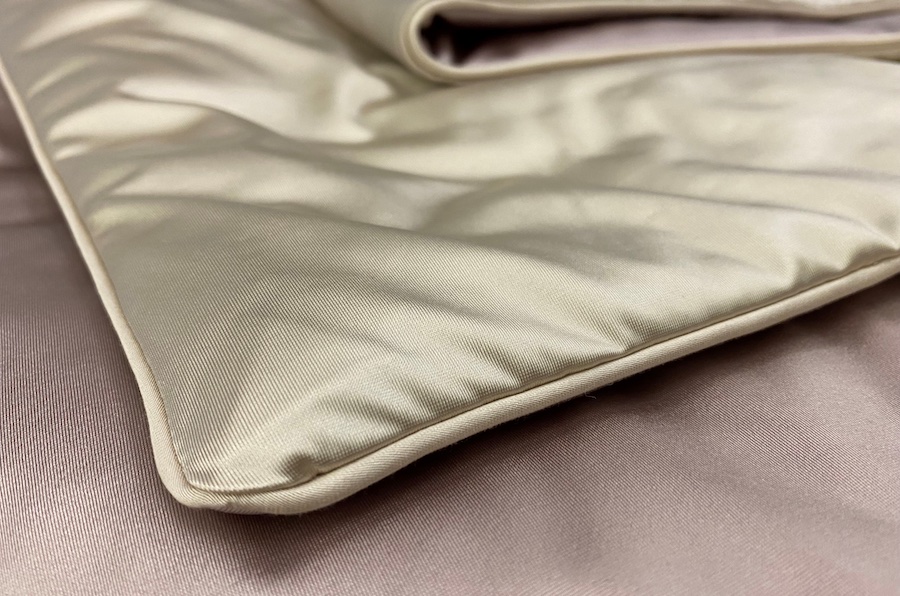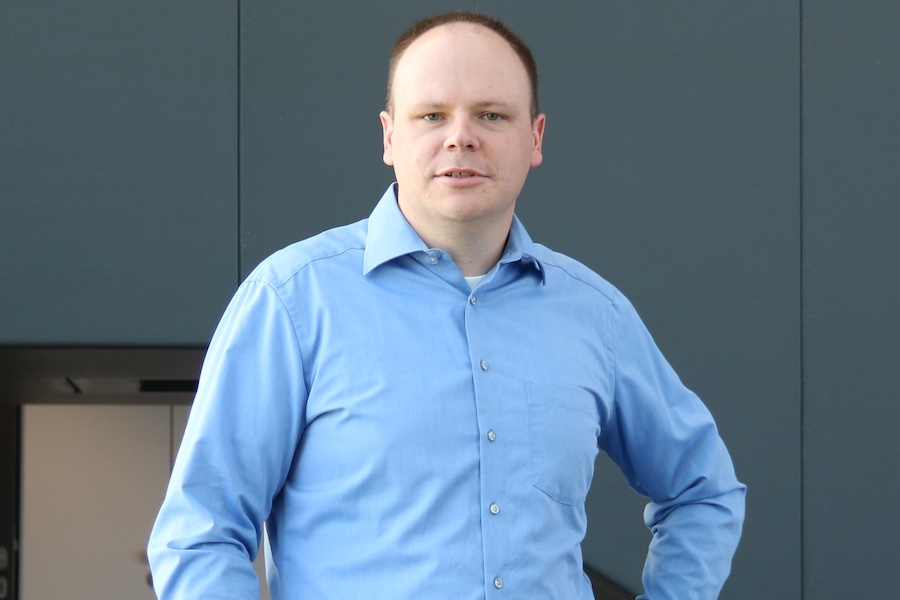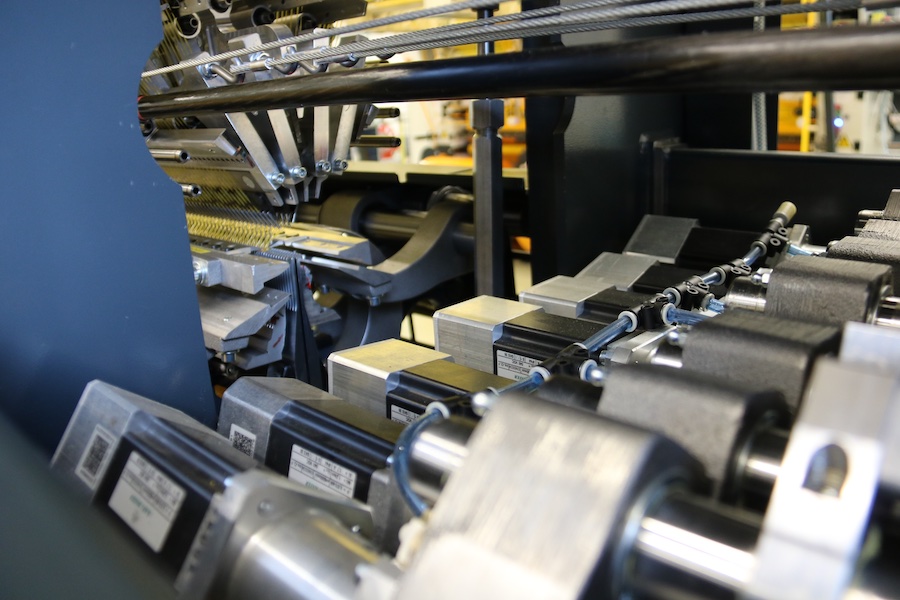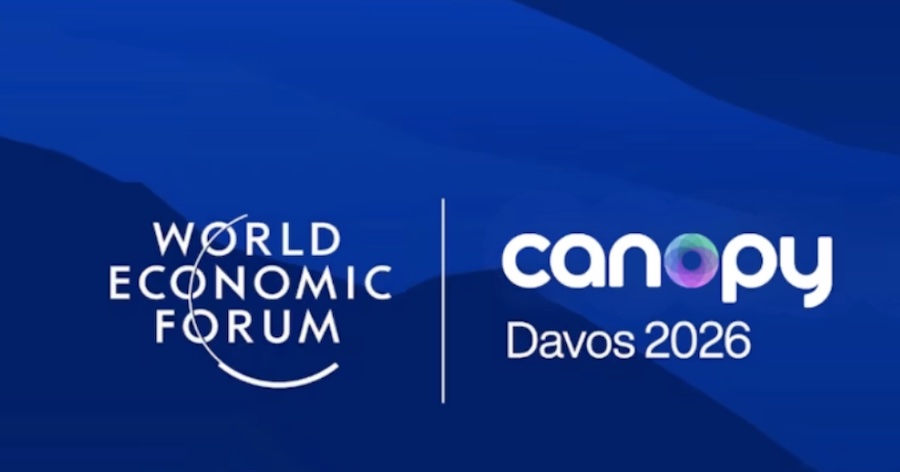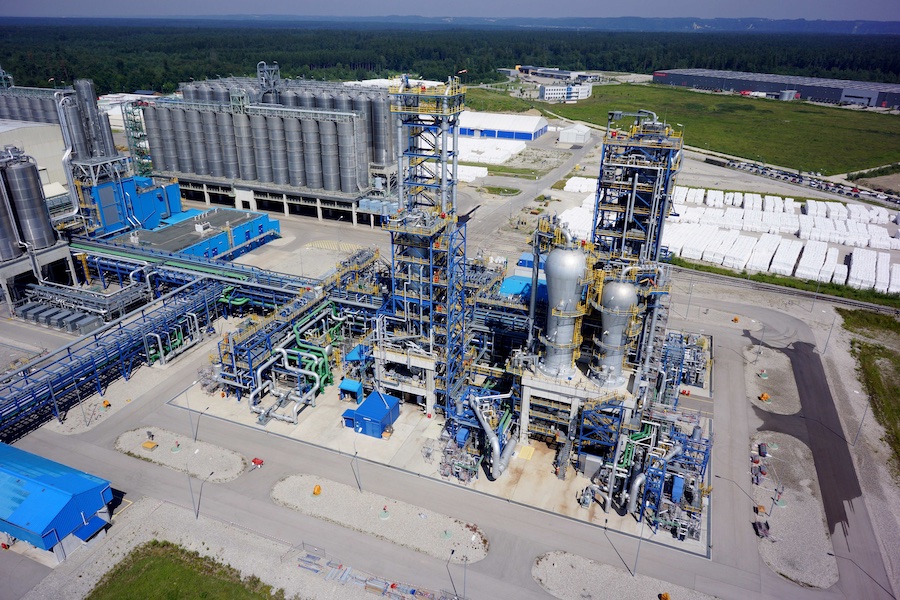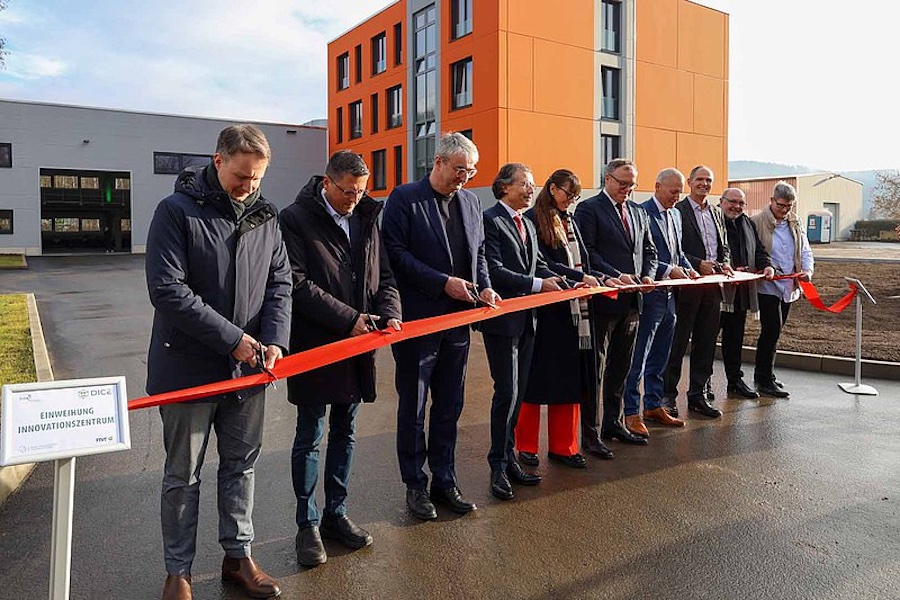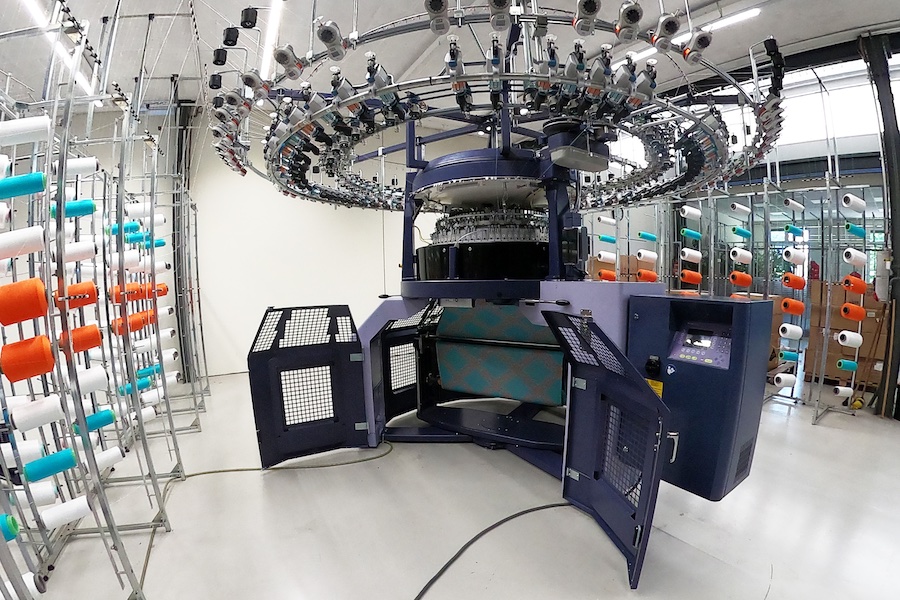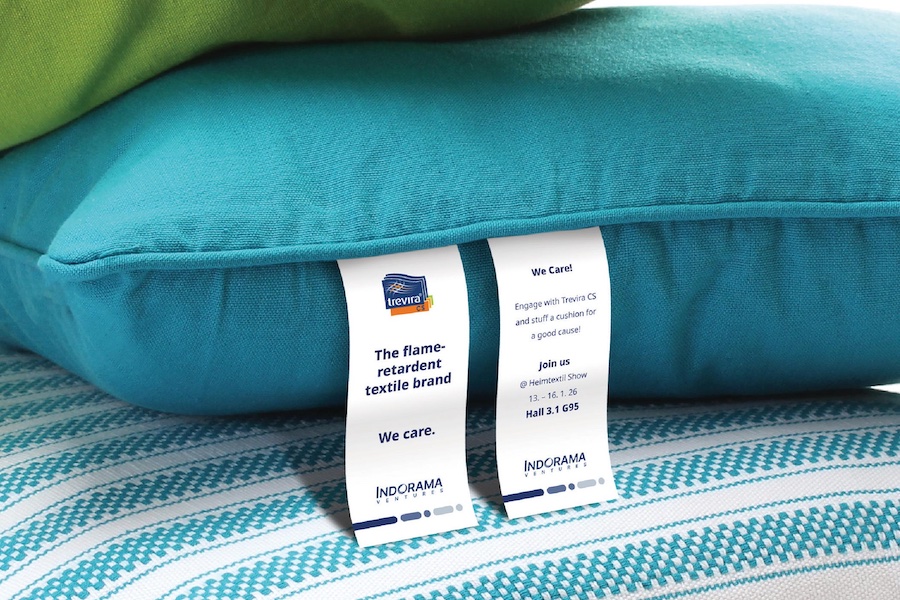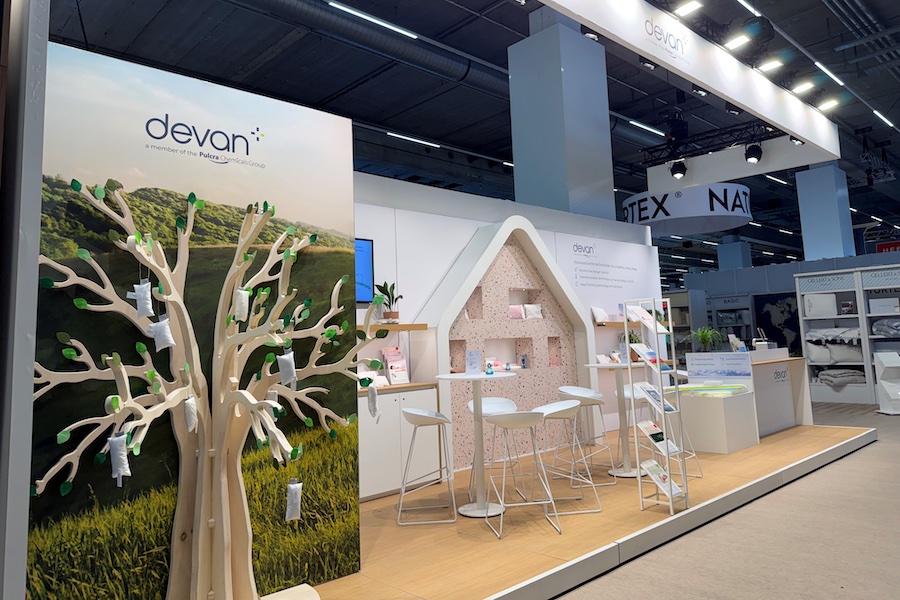#Recycling / Circular Economy
Polyester-based tricot fabric with elasticity – a new development from KARL MAYER
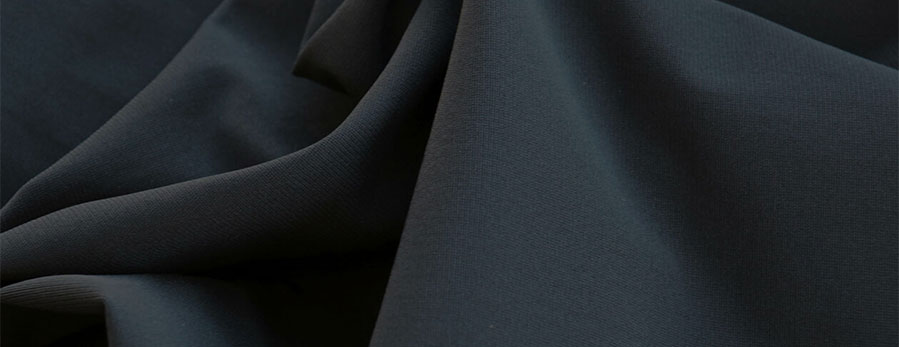
Elastic yet still recyclable
The textile industry is responsible for huge mountains of waste in Europe: in Germany alone, 390,000 tonnes of textile waste are produced every year. Only Italy tops this figure with almost 466,000 tonnes per year, as shown by a study on waste disposal behaviour in 15 EU countries commissioned by the fashion label Labfresh. According to further study results, every German person produces 4.7 kilograms of textile waste, of which only 0.5 kilograms are recycled and 0.4 kilograms are reused without treatment. The rest is incinerated or dumped. /1/
A key reason contributing to the low recycling rate is the purity of the material. Many clothing textiles consist of fibre or yarn mixtures that cannot be separated for the treatment process or can only be separated with great difficulty. If, for example, discreet comfort stretch for the clothing sector is required, KARL MAYER’s new fabric offers an ecological alternative. The textile is made from yarns of different polyester polymers: a semi-dull version for a soft look and a bicomponent fibre that offers moderate mechanical elasticity with a well-thought-out structure. The elements of the stretchable fibre consist also of different polymers and show different shrinkage behaviour: when heated, a spiral crimp is formed. As the bulky deformation is not mechanically induced – unlike in textured yarns – it produces a more permanent and pronounced elongation in comparison.
The two polyester yarns were processed into a dense fabric on a high-performance HKS 3-M tricot machine in gauge E 32. The fabric weighs 202 g/m². It stands out thanks to its dense, rich feel and a heavy drape. Clothing made from it is comfortable to wear, easy to wash, does not need to be ironed and can be recycled – after removing accessories such as buttons and buckles.



